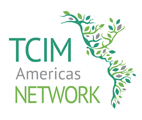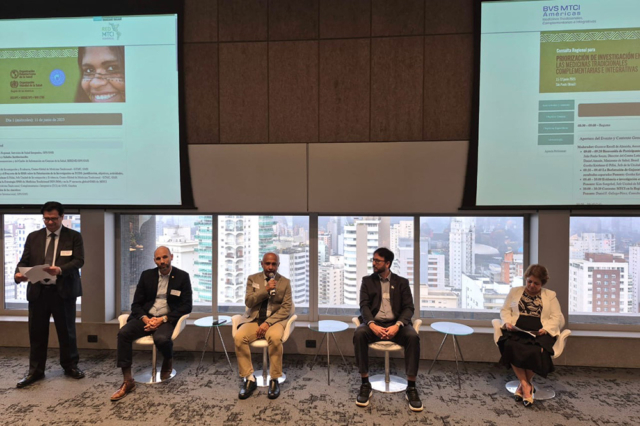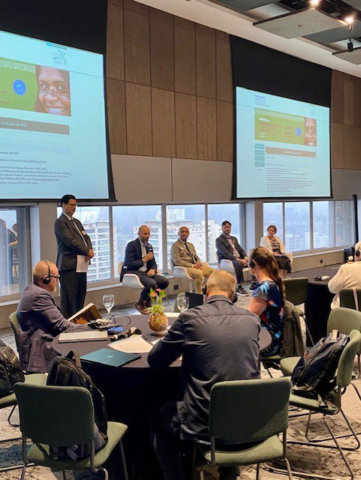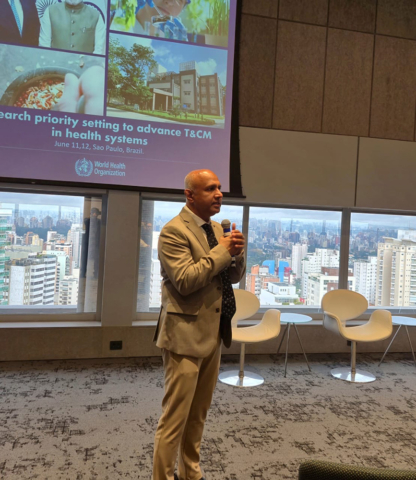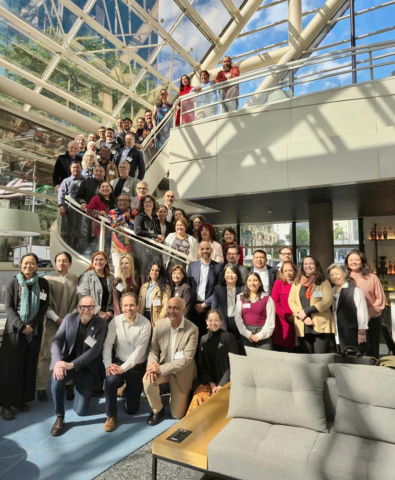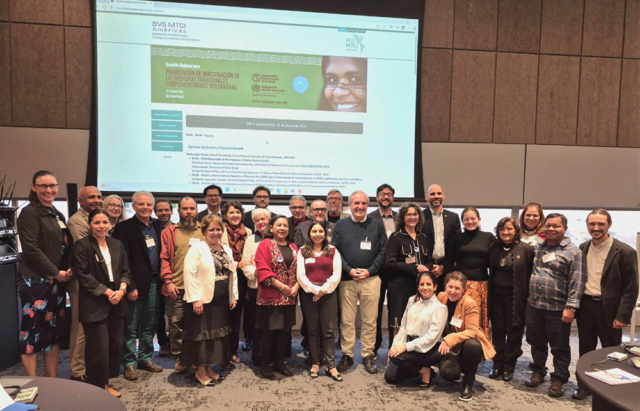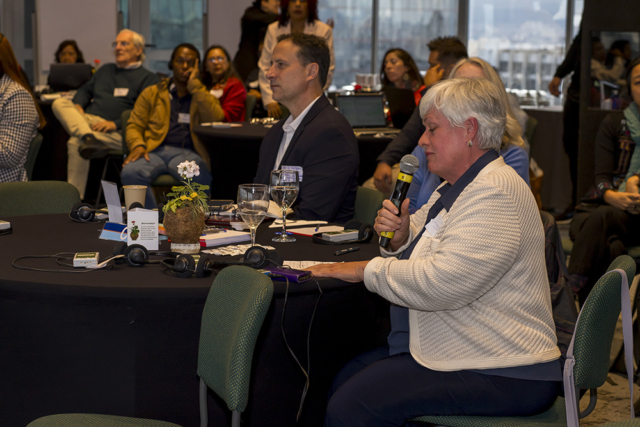
Regional Consultation in Research Prioritization in Traditional, Complementary and Integrative Medicines
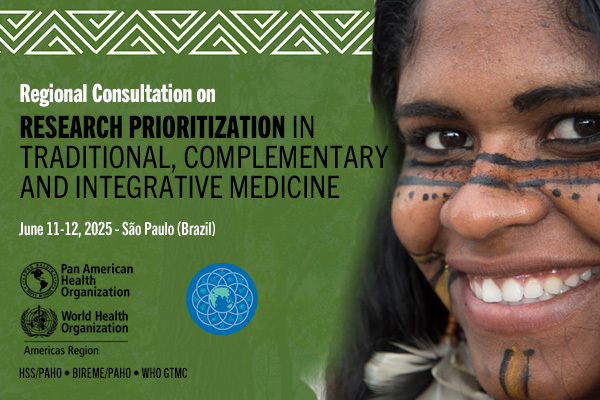
Regional Consultation
Background and context
The World Health Organization (WHO) is conducting a research prioritization exercise on Traditional, Complementary, and Integrative Medicines (TCIM), coordinated by its Global Centre for Traditional Medicine (GTMC), in collaboration with several technical units, its Regional Offices, and with methodological support from the University of Technology Sydney.
The importance of TCIM in the Primary Health Care (PHC) Strategy has been recognized since the Alma Ata Declaration (1978), reinforced by the Astana Declaration (2018), and other international instruments. WHO has published two editions of its Traditional Medicine Strategy (2002–2005 and 2014–2023) and is currently developing a new version for the period 2025–2034. These instruments, as well as the Gujarat Declaration of the first WHO Global Summit on Traditional Medicine, have highlighted the importance of TCIM research for strengthening people-centered health systems and the contribution of TCIM to health outcomes and well-being.
The evidence base for TCIM has grown exponentially in recent decades, but significant challenges remain in understanding its scope and integrating it into health care. The fragmented approach to TCIM research and the lack of global guidelines for developing practical evidence are obstacles that this prioritization exercise seeks to overcome. This exercise seeks to promote the integration of TCIM into health systems, based on the principles of inclusion, sustainability, respect for the rights of Indigenous Peoples, and the promotion of the sustainable use of natural resources, to generate high-quality, context-appropriate evidence that supports the safe and effective use of TCIM. The aforementioned research and evidence-related challenges align with the findings reported by Member States in the 3rd global survey conducted in 2023.
In the Americas, traditional Indigenous medicine is based on the knowledge and health practices developed by Indigenous Peoples, including their unique spiritual beliefs and worldview. This sets it apart from other TCIMs globally.
In this regard, some practical aspects that need to be considered are: the philosophy and worldview of traditional Indigenous medicine; the vision of its articulation with government health systems; the recognition of traditional scholars and therapists, their knowledge and practices; among others. Traditional Indigenous medicine, in itself, is a right of the Peoples recognized in international instruments. and in national legal frameworks of the countries of the Region , which is part of the historical and cultural heritage , which encompasses a legacy of knowledge and interventions passed down and applied between generations. Under the International Convention on the Elimination of All Forms of Racial Discrimination, health is understood as "the highest attainable standard of physical and mental health." , which is increasingly considered from an ecocentric perspective. This perspective is consistent with Indigenous peoples' definition of health, which includes individual and collective dimensions and integrates spirituality, traditional medicine, biodiversity, and interconnectedness. This definition is closely linked to their right to self-determination and supported by the principles of the Universal Declaration on the Rights of Indigenous Peoples.
The prioritization exercise, which will be carried out in several phases, includes consultations in all WHO regions. Therefore, the Pan American Health Organization (PAHO) is coordinating a regional stakeholder consultation for the Region of the Americas.
General Objective
Facilitate effective, fair, and equitable access to TCIM through rigorous, appropriate, and prioritized research, respecting the rights of Indigenous Peoples, by establishing a comprehensive roadmap for countries, regions, and the global level, strengthening coordinated research efforts, utilizing appropriate methodologies, strengthening networks, and guiding the allocation of resources for the development of impactful research programs.
Specific Objectives
- Identify knowledge gaps relevant to regions and globally to achieve the objectives of the WHO Traditional Medicine Strategy 2025-2034.
- Create a prioritized list of domains and categories for TCIM research funding that Member States, regions, and institutions can reference, highlighting key research topics and activities that will improve global public health.
- Recommend mechanisms and frameworks to coordinate regional and global research efforts in TCIM.
- Promote transformative changes in global health by fostering research on innovative approaches to TCIM that can help reframe our understanding of health and well-being (including explorations of how contemporary science can improve TCIM practices while also identifying what modern science can learn from TCIM to improve the health and well-being of people and the planet).
- Creation of a decision-support tool for Member States to assist in assessing the feasibility and timelines of various research priorities.
- To create a discussion group on Indigenous traditional medicine in the Americas to consolidate specific contributions and approaches to this topic, to be taken into account in research priorities and the implementation of the WHO Traditional Medicine Strategy 2025-2034.
Methodology
The prioritization exercise will adapt the methodology proposed in the WHO guide "A systematic approach to undertaking a research priority setting exercise." and includes the following phases: Phase 1 (scope definition and project planning). Phase 2 (document analysis and regional expert consultations). Phase 3 (online global Delphi panel to reach expert consensus on TCIM research priorities and expected change outcomes). Phase 4 (preparation of final report for publication). The regional expert consultation in the Americas Region is part of Phase 2 of the project, and will be conducted through a two (2) day, in-person event in the city of São Paulo, Brazil, on June 11-12, 2025.
Place: Radisson Paulista Hotel. Alameda Santos, 85 - Jardins, São Paulo - SP, 01419-000, Brazil.
The event will be supported by the Latin American and Caribbean Center for Health Information Sciences (BIREME), located in São Paulo, in coordination with the Department of Integrated Health Systems of the Pan American Health Organization.
Day 1 (Wednesday): June 11, 2025
08:30 – 09:00 – Registration
Opening of the Event and General Context
Moderator: Gustavo Rosell de Almeida, Regional Advisor, Integrated Health Services, PAHO/WHO- 09:00 – 09:20 - Welcome of Participants and Institutional Greetings
João Paulo Souza, Director, BIREME/PAHO/WHO
Daniel Amado, National Health Authority, Ministry of Health, Brazil
Geetha Krishnan G Pillai, Head of Research and Evidence Unit, GTMC, WHO - 09:20 – 09:40 - The Gujarat Declaration and the WHO Project on Prioritizing Research in TCIM: Rationale, Objectives, Activities, Expected Outcomes
Speaker: Geetha Krishnan G Pillai, GTMC, WHO - 09:40 – 10:00 - Evidence and research in the WHO Traditional Medicine Strategy 2025–2034 and the 3rd WHO Global Survey
Speaker: Kim Sungchol, WHO, Geneva - 10:00 – 10:20 - Context: TCIM in the Americas Region
Speaker: Daniel F. Gallego-Pérez, PAHO/WHO
10:20 – 10:40 – Coffee
- 10:40 – 11:00 - Traditional Medicine of Indigenous Peoples in light of PAHO/WHO Mandates
Speaker: Norman Gil, International Consultant, Cultural Diversity, PAHO/WHO
Session 1: Research Priorities in TCIM
Moderator: Geetha Krishnan G Pillai, WHO- 11:00 – 11:20 - Introduction to working groups and prioritization criteria
Speaker: Amie Steel, Co-Director, ARCCIM - 11:20 – 12:40 - Topic 1: Problems and priorities of TCIM
Activity: Working groups, research priorities
12:40 – 14:00 – Lunch and group photo
Session 2: Research Priorities in TCIM
Moderator: UTS- 14:00 – 15:20 - Topic 2: TCIM Research Infrastructure
Activity: Working groups, research priorities
15:20 – 15:45 – Coffee
Session 3: Research Priorities in TCIM
Moderator: UTS- 15:45 – 17:00 - Topic 3: Evidence-based decision-making and TCIM
Activity: Working groups, research priorities
- 17:00 – 17:15 - Announcements
Gabriela Pertuz, PAHO/WHO
- 18:00 – 20:00 - Cultural activity between participants and the teams from WHO, PAHO, and BIREME
Location: “La Terrasse”, Radisson Hotel
Day 2 (Thursday): June 12, 2025
- 09:00 – 09:15 - Day 1 Recap and Day 2 Program
Gabriela Pertuz, PAHO/WHO
Session 4: Research Priorities in TCIM
Moderator: UTS- 09:15 – 10:30 - Topic 4: Identifying and measuring roadmap success
Activity: Working groups, research priorities
10:30 – 11:00 – Coffee
Session 5: Research Priorities in TCIM
Moderator: UTS- 11:00 – 12:30 - Topic 5: Iterative, emerging and additional points
Activity: Working groups, research priorities
12:30 – 14:00 – Lunch
Session 6: Global Library of Traditional Medicine – TMGL
Moderator: Veronica Abdala, BIREME/PAHO/WHO- 14:00 – 15:30 - Project Presentation and Regional Consultation: Global Library of Traditional Medicine – TMGL/WHO
Speaker: João Paulo Souza, BIREME/PAHO/WHO
15:30 – 16:00 – Coffee
Session 7: Closing Session
Moderator: Gustavo Rosell de Almeida, Regional Advisor, Integrated Health Services, PAHO/WHO- 16:00 – 17:00 - Conclusions, Recommendations, Next Steps
Speakers:
- Geetha Krishnan G Pillai, GTMC, WHO
- Amie Steel, Co-Director, ARCCIM
- Gustavo Rosell de Almeida, PAHO/WHO
Explanatory note – This consultation process aims to gather opinions from experts and stakeholders in the fields of Traditional, Complementary, and Integrative Medicine. It is important to note that:
- Non-traditional consultation: Although indigenous communities have been invited to participate, this process does not follow the traditional forms of organization and consultation specific to these communities.
- Diversity of opinions: The opinions collected reflect only the perspectives of the experts and social actors consulted, and may not represent all existing points of view, especially those of indigenous communities.
- Non-binding: The recommendations and conclusions derived from this consultation are not binding and should be considered as guidance, not a final decision.
Participants
Country RepresentativeDaniel Miele Amado, DEPPROS/SAPS/MS, Brazil
Maria Teresa Soto, Ministerio de Salud, Chile
Yoselyn Redondo, Ministerio de Salud, Costa Rica
Johann Perdomo, Ministerio de Salud Pública, Cuba
Marco Vergara, Ministerio de Salud, Ecuador
Germán Giovany Ujpán Mendoza, Unidad de Atención de Pueblos Indígenas e Interculturalidad, MSalud Pública y Asistencia Social, Guatemala
Miguel Ángel Herrera Albarrán, Ministerio de Salud, México
Leyda Jimenez, Ministerio de Salud, Panamá
Martha Isabel Villar, Ministerio de Salud, Peru
National/Regional/International Organizations
Álvaro Pinto Palha Júnior, Secretaria de Saúde Indígena/MS, Brazil
André Fernando Baniwa, Secretaria de Saúde Indígena/MS, Brazil
Ana Luce de França Araújo, DAF/SECTICS/MS, Brazil
Belmiro Morgado, DAF/SECTICS/MS, Brazil
Caio Fábio Portella, CABSIN, Brazil
Patricia Mahecha, RIMUHC McGill University, Canada
Dario Mejia Montalvo, Filac
Joana Bezerra, IPON – Indigenous Peoples Observatory Network
Emilker Gabriel Cuatín Cuesta, Red de Jóvenes Indígenas de América Latina y el Caribe
Natalia Sofía Aldana, Red MTCI Américas
Susan Wieland, Cochrane Complementary Medicine Field
Esther Ninoska Flores, Universidad Mayor de San Andrés, Bolivia
Fábio Carmona, Universidade de São Paulo, Brazil
Islândia Maria Carvalho de Sousa, ObservaPICS/Fiocruz, Brazil
Iva Lloyd, World Naturopathic Federation
Izabela Fulone, DECIT/SCITIE/MS, Brazil
Jorge Berra, Ayurveda Prema, Argentina
Jose Alberto Garcés, Hombre Medicina Red Nac Personas Mayores/Núcleo de Tungurahua, Ecuador
José Carlos Tavares, Universidade Federal do Amapá, Brazil
Juan Alberto Sanchez Patria, Organiz. Nac. Indígena de la Amazonia Colombiana (OPIAC)
Nelson Filice de Barros, Universidade Estadual de Campinas (UNICAMP), Brazil
Ricardo Ghelman, CABSIN, Brazil
Victorson David, Academic Consortium for Integrative Medicine and Health; Northwestern University, United States
WHO
Geetha Krishnan
Kim Sungchol
Robert Fraser Terry
PAHO/WHO
Ana Sena
Daniel F Gallego-Pérez
Gustavo Rosell
Norman Gil
Gabriela Pertuz
PAHO/WHO Brazil
Akemi Kamimura
Ileana Fleitas Estevez
Rafael Dall'Alba
PAHO/WHO Cuba
Roxana Gonzalez
PAHO/WHO BIREME
João Paulo Souza
Ana Carolina Franzon
Elizabeth Biruel
Joanita Barros
Jobar Farias
Luzia Bezerra
Luciana Blanco
Marcia Barretto
Marcos Mori
Marco Miacci
Mirelys Diaz
Rosemeire Rocha Pinto
Sílvia Valentin
Sueli Suga
Verônica Abdala
Facilitators
Jonathan Adams
Aime Steel

